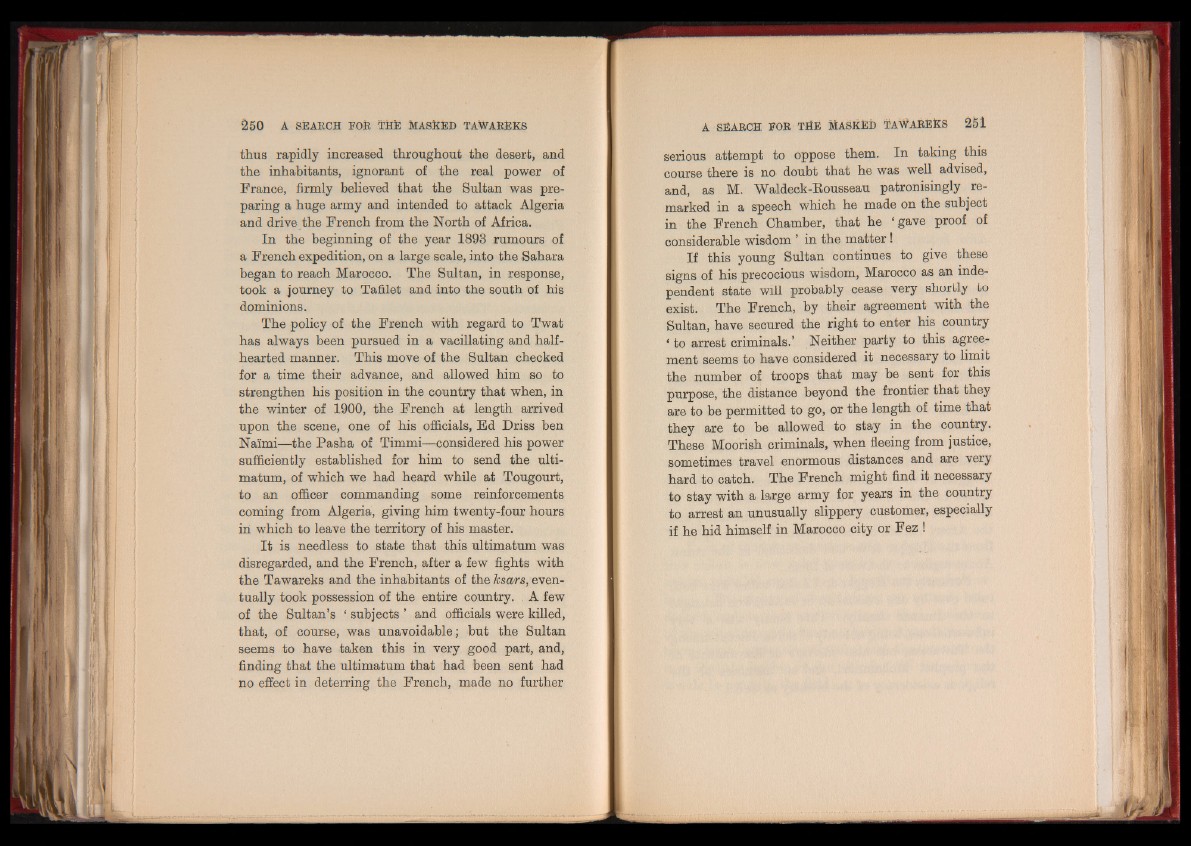
thus rapidly increased throughout the desert, and
the inhabitants, ignorant of the real power of
France, firmly believed that the Sultan was preparing
a huge army and intended to attack Algeria
and drive the French from the North of Africa.
In the beginning of the year 1893 rumours of
a French expedition, on a large scale, into the Sahara
began to reach Marocco. The Sultan, in response,
took a journey to Tafilet and into the south of his
dominions.
The policy of the French with regard to Twat
has always been pursued in a vacillating and halfhearted
manner. This move of the Sultan checked
for a time their advance, and allowed him so to
strengthen his position in the country that when, in
the winter of 1900, the French at length arrived
upon the scene, one of his officials, Ed Driss ben
Naimi—the Pasha of Timmi—considered his power
sufficiently established for him to send the ultimatum,
of which we had heard while at Tougourt,
to an officer commanding some reinforcements
coming from Algeria, giving him twenty-four hours
in which to leave the territory of his master.
It is needless to state that this ultimatum was
disregarded, and the French, after a few fights with
the Tawareks and the inhabitants of the ksars, eventually
took possession of the entire country. A few
of the Sultan’s ‘ subjects ’ and officials were killed,
that, of course, was unavoidable; but the Sultan
seems to have taken this in very good part, and,
finding that the ultimatum that had been sent had
no effect in deterring the French, made no further
serious attempt to oppose them. In taking this
course there is no doubt that he was well advised,
and, as M. Waldeck-Bousseau patronisingly remarked
in a speech which he made on the subject
in the French Chamber, that he ‘gave proof of
considerable wisdom ’ in the matter!
If this young Sultan continues to give these
signs of his precocious wisdom, Marocco as an independent
state will probably cease very shortly to
exist. The French, by their agreement with the
Sultan, have secured the right to enter his country
‘ to arrest criminals.’ Neither party to this agreement
seems to have considered it necessary to limit
the number of troops that may be sent for this
purpose, the distance beyond the frontier that they
are to be permitted to go, or the length of time that
they are to be allowed to stay in the country.
These Moorish criminals, when fleeing from justice,
sometimes travel enormous distances and are very
hard to catch. The French might find it necessary
to stay with a large army for years in the country
to arrest an unusually slippery customer, especially
if he hid himself in Marocco city or Fez !